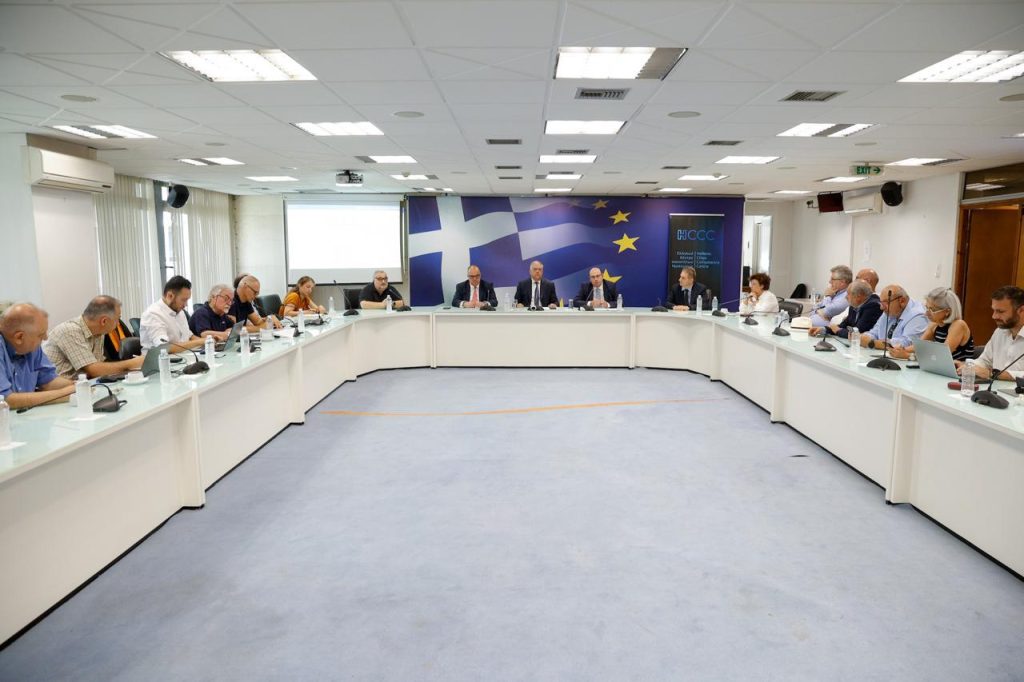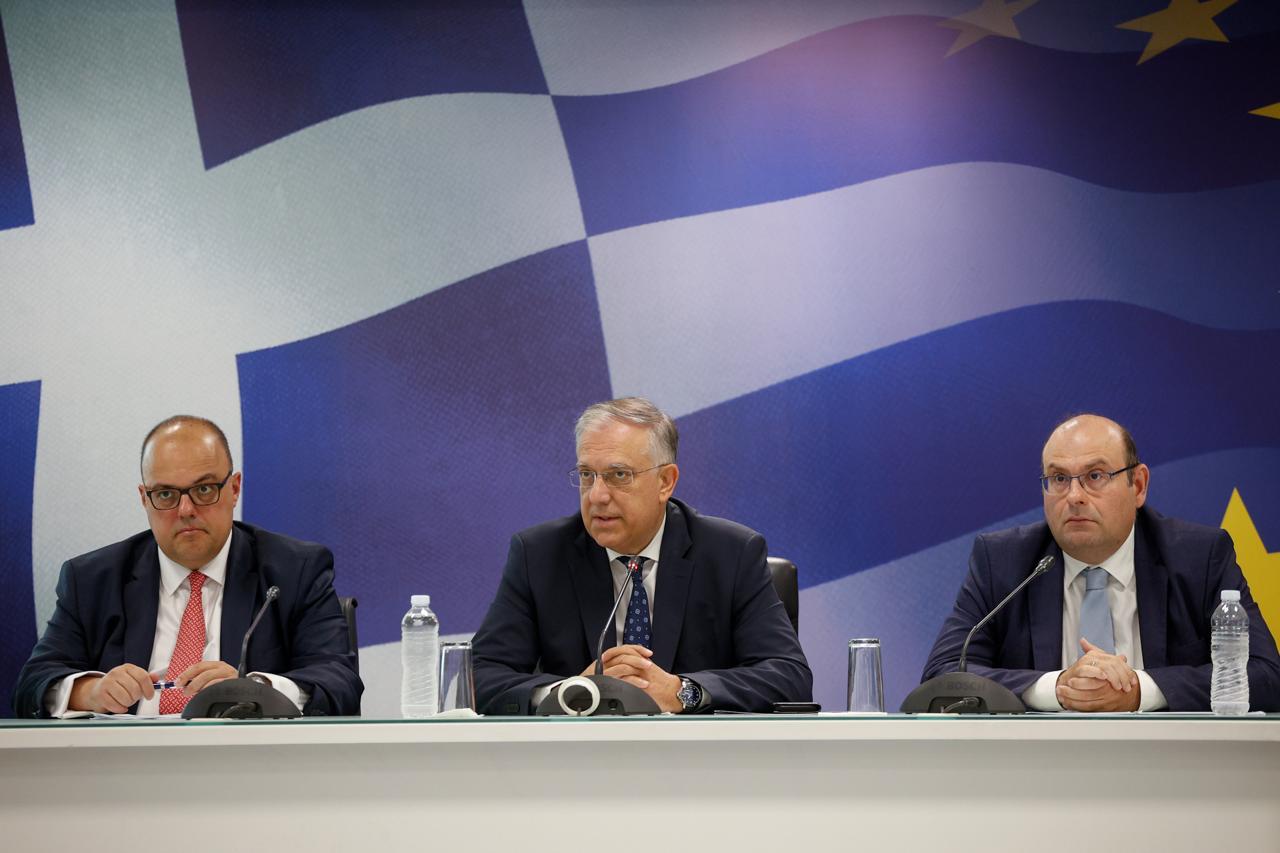From Vision to Action: Establishment of the first Hellenic Chips Competence Centre (HCCC)
Athens, 16 July 2025. – With the strategic partnership of the Association of Hellenic Emerging Technologies Companies (HETiA) and the Ministry of Development, and with the support of the European Chips Joint Undertaking (JU) in the framework of the “Chips for Europe” initiative of the European Chips Act, the establishment of the first Greek Chips Competence Centre, the Hellenic Chips Competence Centre (HCCC), is announced.
HCCC started its operation on 1 June 2025 and is one of the 30 corresponding centres created across Europe, with the aim of strengthening Europe’s technological autonomy in this critical sector. The official launch of HCCC marks a new era for innovation and technological progress in Greece.
Semiconductors are fundamental materials used in the production of integrated circuits or microcircuits (“chips”). They provide the basis for the design and implementation of electronic circuits, ensuring their reliable and efficient operation.
Chips are tiny electronic circuits found almost everywhere: in computers, smartphones, vehicles, medical devices, and communication networks. They are responsible for recognizing our analog world, processing data, and executing orders. If they were to stop, critical infrastructure would be disrupted: energy, water, transport, communications and vital public services. The modern world, literally, depends on these tiny technological achievements.

Why chips are a matter of national and European importance
The dependence of global supply chains on a limited number of (mainly Asian) manufacturers is a strategic challenge for Europe. The international chip shortage during the Covid-19 pandemic (2020–2021) highlighted the need to bring design, development and production back to the West. In response, the European Union adopted the European Chips Act as a Regulation in September 2023, following the example of the US, with the aim of strengthening its technological autonomy and sovereignty.
With the HCCC, Greece is taking a decisive step towards its inclusion in the European map of strategic infrastructures in the semiconductor (chip) sector. Through a national partnership that connects industry with the research and academic community, it launches the development of a national strategy and new, significant investments with the cooperation of the public and private sectors.
The aim is to make the country an important hub of New Technologies in the Southeastern Mediterranean, claiming a dynamic presence in the modern digital economy.
What is HCCC and what is its role
HCCC is a non-profit partnership, a consortium of partners between HETiA (which represents companies operating in Greece in the semiconductor and chips sector – from small start-ups to large multinationals) and almost all Greek research and academic institutions with an active presence in this field.
With a budget of about 7 million euros. The Centre aspires to act as a link between Greek innovation and European technological innovation.
Recent studies estimate that the global microchip market will exceed $1 trillion by 2030. Although Greece can hardly compete with traditional markets for the construction of very large-scale semiconductor fabs (due to the high demands on infrastructure and investment), it has significant opportunities to position itself in specialized, smaller-scale applications, especially in sectors where it has significant know-how, talent and competitive advantages.
The HCCC creates the necessary background for the development of such an industrial activity in the country.
At the same time, HCCC aims to enhance innovation, support start-ups and small and medium-sized enterprises, transfer know-how, train new skilled human resources, as well as support the creation of infrastructure for design, testing, and pilot production.
Statement by the Minister of Development Mr Takis. Theodorikakos:
Semiconductors form the basis of emerging technologies — from artificial intelligence and communication networks to transportation, medical systems, and defense. With the establishment of the first Hellenic Chips Competence Center, Greece is dynamically entering the European infrastructure network being built around microchips, the most strategic component of the new digital era. With national funding of €3.63 million — matched by an equal amount of European Union funding — the Hellenic Chips Competence Centre is being established as a reference point for research, innovation, collaboration with industry, and the training of specialized human capital. To implement this initiative, HETiA has set up a non-profit Consortium, which includes leading Research Centers such as ‘Demokritos’, FORTH, and CERTH, all supervised by the Ministry of Development. This initiative is a significant contribution to the productive transformation of our economy and to strengthening its resilience and competitiveness.
Statement by the President of HCCC, Mr. Emmanouel Zervakis:
“The creation of the Hellenic Chip Competence Centre is a milestone for our country. It is the first systematic effort to use our strengths in the field of chips in an organized way and to actively join the European strategy for technological autonomy. Greece has already formed a remarkable ecosystem, and with HCCC we are creating the institutional and technological framework for the next phase of development. We call on the State and the private sector to support this effort with vision and consistency.”
HCCC’s first actions will be presented at the HETiA Emerging Tech Forum, which will take place on December 11, 2025, in Athens.
For more information visit: www.hccc.org.gr
📩 Press Contact: info@hccc.org.gr | Tel. +30 210 6179855

Memorandum: HCCC Partners
Coordinating Partner
- Association of Greek Emerging Technologies Companies (HETiA)
Research and Technology Organizations – Partners
- National Center for Research in Natural Sciences “Demokritos” – (NCSRD)
- Foundation for Research and Technology – HELLAS – (FORTH / FORTH)
- National Centre for Research and Technological Development (CERTH)
Academic Institutions – Partners
- National and Kapodistrian University of Athens (NKUA),
- National Technical University of Athens (NTUA),
- University of West Attica (UWA),
- Aristotle University of Thessaloniki (AUTH),
- Democritus University of Thrace (DUTH),
- University of Ioannina (UΟI),
- University of Thessaly (UTH),
- University of Peloponnese (UOP),
- University of Patras (UPAT),
- Technical University of Crete (TUC),
- Hellenic Open University (HOU)
Partners & Industry/Public Supporters – Partners
- Micro&Nano Scientific Society (MICRONANO)
Note to Editors
The Hellenic Chips Competence Centre (HCCC) project is co-founded by the European Union and the Greek Government via COMPETITIVENESS programme. The views and opinions expressed are solely those of the author(s) and do not necessarily reflect those of the European Union or EYDE-MEK. Neither the European Union nor the funding authority can be held responsible for them.
References
European Chips Joint Undertaking (JU) – Secretariat-General for Research and Innovation (GSRI): Official website
https://gsri.gov.gr/en/participation-of-gsri-in-the-european-chips-joint-undertaking-ju/
European Chips Act
Chips for Europe initiative
https://digital-strategy.ec.europa.eu/en/factpages/european-chips-act-chips-europe-initiative
The semiconductor decade: A trillion-dollar industry
April 1, 2022 | Article by McKinsey & Company
https://www.mckinsey.com/industries/semiconductors/our-insights/the-semiconductor-decade-a-trillion-dollar-industry
